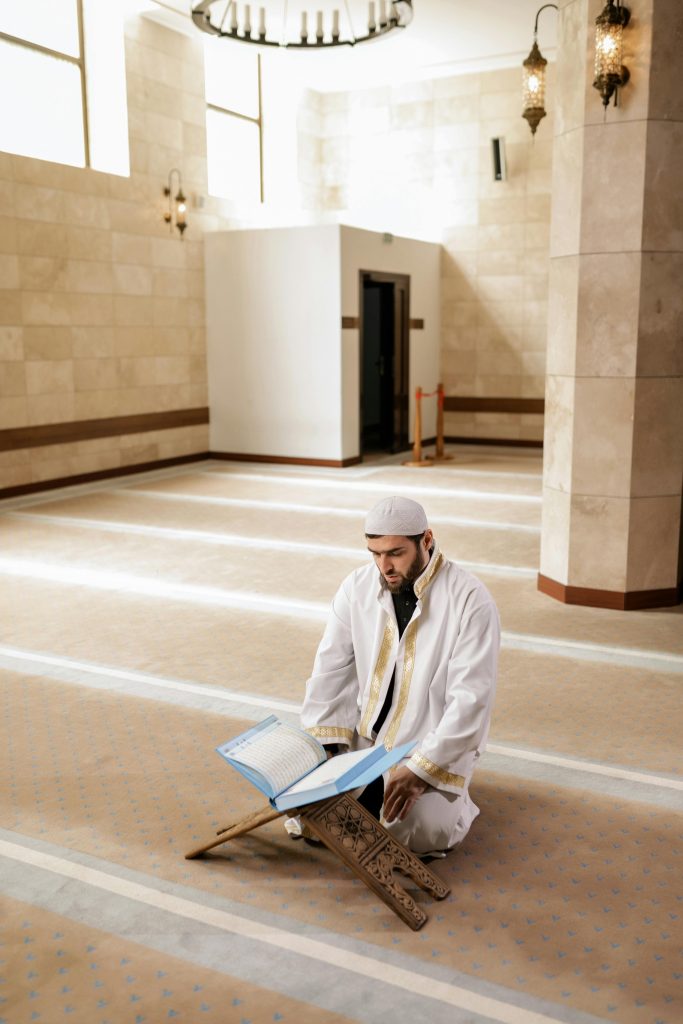
Forgiveness, an essential trait for fostering peace, harmony, and inner tranquillity, is a reoccurring theme in Islamic teachings. It is the remedy for a troubled heart and a key to achieving spiritual growth. The journey of forgiveness, from understanding its importance to practicing it
so that it is illuminated by the verses of the Holy Quran
the words of Prophet Muhammad (peace be upon him) in the Hadiths.
Let us delve deeper into these sacred texts and explore the transformative power of forgiveness.
The Journey of forgiveness in the Quran:
1. ‘And let not those among you who are blessed with graces and wealth swear not to give to their kinsmen, the poor, and those who left their homes for Allah’s cause. Let them pardon and forgive. Do you not love that Allah should forgive you? And Allah is Oft-Forgiving, Most Merciful’ (24:22). This verse emphasizes the importance of forgiving others, as those who forgive will be granted Allah’s mercy and forgiveness.
2. ‘The believers are but brothers, so make settlement between your brothers. And fear Allah that you may receive mercy’ (49:10). The Quran teaches us that all believers are brothers and sisters, and we must strive to reconcile and forgive our fellow believers to maintain unity and solidarity.
The Journey of forgiveness in the Hadith:
1. The Prophet Muhammad (PBUH) said, ‘The best deeds are: to believe in Allah, to fight in the cause of Allah, and to perform Hajj and Umrah. And the most superior among these deeds is to believe in Allah’ (Sahih al-Bukhari, 26). This hadith highlights the importance of belief, which encompasses forgiveness towards others, as a paramount quality of a believer.
2. Prophet Muhammad (PBUH) also said, ‘Whoever suffers an injury and forgives (the person responsible), Allah will raise his status to a higher degree and remove a sin from him’ (Sunan al-Tirmidhi, 1384). Forgiving others raises us to a higher spiritual level and erases our past sins, as narrated in this hadith.
3. The Prophet Muhammad (PBUH) said, ‘Shouldn’t I tell you about the best deeds, the purest in the sight of your Lord, which raise your rank to the highest, which are better for you than spending gold and silver, and better than meeting your enemy, so you strike at their necks, and they strike at yours?’ The companions replied, ‘Indeed, tell us, O Messenger of Allah!’ He said, ‘Frequent remembrance of Allah’ (Sunan al-Tirmidhi, 3377). This hadith indicates that the continuous remembrance of Allah, which includes forgiving others, is a virtuous act that leads to an elevated spiritual standing.
Conclusion:
The journey of forgiveness involves recognizing the virtues of forgiving others, as expounded by the Quran and Hadith. By practicing forgiveness, a believer seeks to embody the mercy, compassion, and love demonstrated by Allah. Ultimately, the journey of forgiveness culminates in spiritual growth and a deeper connection with our Creator. Let us, therefore, strive to cultivate forgiveness in our hearts and emulate the path laid out by our beloved Prophet Muhammad (PBUH).








